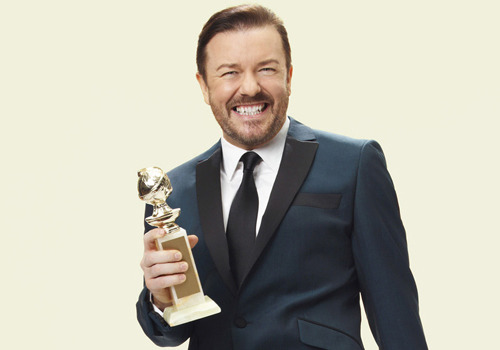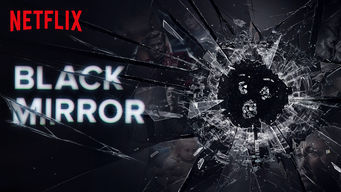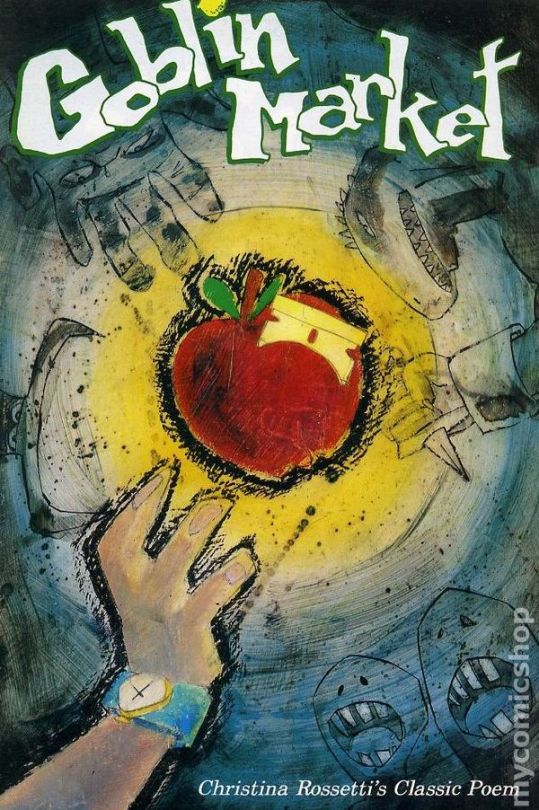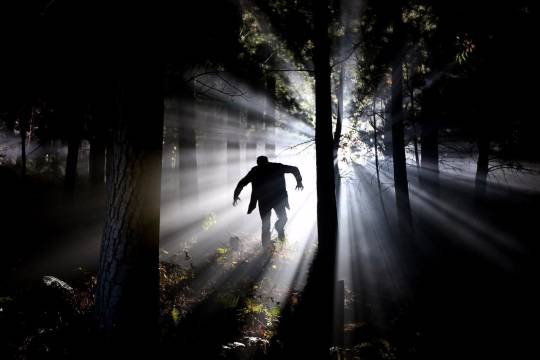#NicoleMistretta
Explore tagged Tumblr posts
Text
It’s Symmetrical

I’m just going to come right out with it. I think the British flag is more visually appealing than the American flag. Before anyone freaks out, I do have a reason. Yes, I understand that they both use the same colors, but the execution is completely different. There is just something special about the design that catches my eye. I think I just really hate stripes. I never liked them, and I never will.
The British flag is completely symmetrical. That’s it. Any way you try to cut the flag in half, it is perfectly symmetrical, just like the number eight. Something about a symmetrical flag with bold colors is extremely appealing to the eye. Anyone who says otherwise is just lying to themselves. Just for the record, I am pretty proud to be an American and I have nothing against our flag. I hope I don’t offend anyone who is super patriotic, but I mean just look at the United Kingdom’s flag. How can you not love that? Although, anyone who does not care about symmetry probably thinks the stars look nicer, I just have to disagree.
On a different note, the army uniforms are amazing. They are a bit silly, specifically the tall hats. But, again, it’s those bold colors catching my eye. I get the practical uses of the camouflage, but we hardly see troops walking around in the city in a more formal uniform because it’s all they have. It must go back to the “dress to impress” unspoken rule. Either way, I am a fan.
- Nicole Mistretta
0 notes
Text
The Best British Comedian

Ricky Gervais is my second favorite comedian right after John Mulany but before Bo Burnham. He is a hilarious British comedian who specializes in offensive humor, my favorite. If you have never seen his comedy skits, you may know him from the British version of The Office, known also as The Office.
I love comedy. Now, when I say that, I am leaning more toward actual comedians and not the people who appear in most “comedy movies”. It may just be me, but a lot of those movies I just don’t find funny. The ones that are “obscene” are extremely censored and usually revolve around sex. Sex jokes can be funny but if you overuse them it just becomes boring and expected. I love that uncensored and shocking comedy that is meant all in good fun. Even though some people take these jokes to heart and get upset, in the end it’s just meant to have a good laugh.
Moving back to Gervais, he is absolutely my type of comedian. The accent and vernacular also make for some great lines that an American comedian would never come up with in a hundred years. Gervais is a known atheist and tends to make a lot of religious jokes having grown up Catholic. This is no surprise, similarly to America, Britain is a place of religion, specifically Christianity.
One of my favorite bits that he does is his reading of Noah’s Ark. I’m sure anyone reading is familiar with the short story, but it is about God wiping out corrupted humanity with a flood but allowing one man and his family to gather a pair of each animal, put them on an ark and survive the flood. The book he reads from and projects on a screen is from a bible school he attended when he was a child. The story is untouched, but the pictures are hand-drawn, allowing him to make snide comments about the imagery portrayed. He goes line by line and picture by picture, sometimes stopping to use a pointer to get his jokes across. Having grown up Catholic, I related to his jokes and comments having probably made similar ones in the past. If you have never seen it, I definitely recommend watching it unless you are easily offended by religious comedy considering its an entire 14 minutes making fun of a famous biblical story.
He is so witty and quick with his bits. Every single sentence rolls off his tongue, but you understand, clearly, every single word he is saying even though it is said quickly. Not many people, especially on a stage having thousands of people watch you, can perform that well. Some comedians can’t even do it. Imagine having to remember a load of jokes that roll one after the other for 2 hours on a stage where you can’t see anything but the bright lights beaming down on you. I could never do something like that in a million years. Overall, I am just always impressed and laughing at this man.
- Nicole Mistretta
0 notes
Text
Black Mirror: A Modern Masterpiece

Black mirror is absolutely genius. The popular series was created by Charlie Brooker, a British screen writer. Each episode is modern satire with a specific theme or moral lesson hidden within it. I absolutely adore this series although I have yet to finish it. I have always loved strange shows with big plot twists. I have probably watched about one season, maybe two and I have never figured out the plot twist before it occurs. To me, that makes it more fun. I think everyone who loves the show can agree that even though you want to figure out what is going on, spoiling the ending before it happens can be boring and predictable. The whole appeal of this show is its odd relatability and shock factor.
My favorite episode is probably The National Anthem. It could be because this episode is the very first one that exposes you to the strange world of Black Mirror, but I find it to be the most memorable and shocking. I mean, the whole story begs the question: is the President really going to screw a pig? If you have not watched this episode, stop reading now and go watch it because I am about to spoil the ending. While it is not as hard to figure out as the other episodes since the main question only has two answers: yes or no, the main plot twist arises from somewhere else. The beloved Princess was kidnapped and is supposedly being tortured until the President screws the pig on live television. If he does it, she is freed. This is non-negotiable. So, in the end, although people are disgusted, they want their sweet Princess to be rescued. The President complies, much to the displeasure and disappointment of his wife. The scene approaches the line of obscenity for what should be shown in a TV show, but it never steps over the line. You hear pig grunts and see the President’s face as well as the disgust and horror of the citizens watching the event. The main plot twist comes when you discover the “kidnapper” was an artist who wanted to show how the media influences the public. He felt horrified that the act was going to be committed and although he let the Princess out 30 minutes before the performance, the President went on with the show. No one had been on the streets to find her, everyone too distracted by the live performance. The President is seen as a hero and the Princess is a survivor. The artist kills himself from guilt and all seems to be somewhat okay. Until you see the fallen relationship between the President and his wife. She no longer wants to be touched by him and can hardly stand to look at him. The ending was extremely frustrating, and I felt unfulfilled, a feeling Black Mirror, makes you feel over and over.
That is another thing I absolutely love about this show. While it is completely fantasized, nothing in these shows is impossible for the future of the world. The endings are realistic. No happy endings because in real life, tragedies don’t have a happy ending. If all goes well when all is said and done, it is more bittersweet than anything. You still have that taste of tragedy that ruins any feeling of pure happiness and relief. A great example is the episode Hatred in the Nation.
This episode of Black Mirror is another one of my absolute favorites. We watched it recently in class. It was both satirical and ironic. The episode revolves around the effects of social media and how although you might say something anonymously or believe it is without consequence, your words hold power and you should be held accountable for them. The citizens in the episode find out that using a hashtag, #DeathTo, and adding a picture of the person you want to die, the most popular person will be killed every day at 5 pm. People continued to use the hashtag even after finding out it actually worked, participating in a “Game of Consequences”. The killer was none other than robotic bees who were created to replace real bees that were killed off by humanity years ago. In the end, the plot twist is that anyone who participated would be killed once the game ended because they had to face their own consequences of their actions. A large portion of the population died. The ending of the movie is also extremely unfulfilling not allowing you to see exactly how it ended but giving you an idea of what could have happened.
I stand by the fact that Black Mirror is absolutely genius and I think everyone should take the opportunity to watch it at least once. It is without a doubt my favorite show to date. People will leave the series feeling strange about the future of the world and thinking about how the things society is doing could affect our future.
- Nicole Mistretta
0 notes
Text
A Passage to Equality

Racism is one of the most complicated issues in our society today. Not because treating people as equals is hard, but because everyone holds hate in their hearts. In the past, the ways different groups of people treated each other caused some of the most horrifying events in history. These tragedies are remembered by many. The people who did and didn’t experience the events hold grudges against the group responsible. This anger turns to hatred as people blame one another. And as generation after generation is taught that hate, the cycle continues. It is so hard for people to break that cycle and come together.
In “A Passage to India” one of the main questions of the text was: could an Englishman and an Indian become friends? Both parties refused to entertain the idea that a friendship could be formed. On the Indian side, it was due to the ignorance and rudeness of the Englishmen and on the English side, it was the result of a superiority complex. The book has you leaning more on the side of the Indians because, while they hate Englishmen, they do not treat them as less-than when face to face. However, the Englishmen treat the Indians with disrespect whether they are around or not. I believed the Indians’ hatred was completely justifiable. That is, until the main character, Dr. Aziz, began his friendship with a few English characters. Aziz’s friends were against his relationship with Fielding and Mrs. Moore simply because of their place of origin. It was not based on the individual character of the person. If Mrs. Moore and Fielding had been known to treat Indian’s terribly, a bad reputation would be justifiable, but this was not the case. That was when I began to see it on both sides.
This book made me so angry at every turn. I can definitely say that the English characters tended to anger me far more than the Indian characters, but again, I think that was because it was normal and accepted for them to be more open with their racism. There was racism on both sides throughout the novel. Eventually, Aziz, who at the beginning refused to hate the English simply because they were English, grew to hate all Englishmen because of a bad experience with two people. It just goes to show how even someone who recognizes the racism and refuses to participate can come to have the same hatred through negative experiences.
Now, all that being said, I definitely get it. Not on a personal level of course, I am an extremely privileged white woman who never has to worry about being killed for the color of my skin. Maybe in another country but not here. I was having this conversation with one of my roommates the other day. She always tells me about her experiences with racism, past and present. It’s horrible. But she has so much hope that one day everyone can just see a person as a person and have no set stereotypes. I won’t go too into detail, but we were talking about how, while we want to see that day, we just aren’t sure. America is in a crazy spot right now. The generations coming along and so accepting of one another, with the exception of a few bad apples of course. I believe that as the older generations begin to die out, we will see more acceptance and change in this country. And as people in my generation begin to have kids and raise them to treat people as equals, we can work toward true equality. But that is so, so hard. As I said before, there is so much hatred to work through. We described it as a staircase. It’s so long and there are so many steps ahead, but we just have to keep climbing in hopes that one generation will reach the top. Kind of cheesy, but it gets the point across.
One of the biggest issues is how touchy of a topic racism is. People need to discuss. The privileged need to ask questions, listen and understand. If people are afraid to ask or if the people with information refuse to speak, I don’t think there is a lot of hope for the future. This novel just really inspired me to start talking to friends and family about these issues again. What I found is how uncomfortable of a topic it is and that is fine. We should be completely uncomfortable with the way things are. I think everyone at ULL should read “A Passage to India”. If students actually read it, I think it will open the doorway to a really important conversation. But hey, that’s just my opinion.
- Nicole Mistretta
0 notes
Text
I Hated Goblin Market and I Hate That It’s Perfect

I am sorry to say this, but I hated Goblin Market. The description was odd, the story was strange, and I was beyond uncomfortable almost the entire time I was reading. Usually weird stuff in stories is interesting to me but in this case, I just felt disturbed. I really can’t tell if it was because the sisters “devoured” each other or if it was the goblins raping one of the sisters with fruit, but I think in general the wording just made everything so much more disturbing than I think necessary. While I really hated this story, what I hate even more, is how it actually works for this class.
In class we were asked, “why do you think it was written like this?” At first, I thought, “I have no idea”. Now, looking back on the question, I think I have a small idea, but, as I stated earlier, there must have been some other way to get across the message without the obscene content. On the other hand, there is no way we would have read this story if not for its disturbing obscenities. That is what made it unique to other stories from its time. It was shocking and had an underlying meaning which makes it the perfect candidate for a classic story. Breaking the norm while leaving symbolism to represent the times. Although I hate to admit it, the story is kind of perfect for this class.
While I felt extremely uncomfortable while reading and listening to the class discussion, I think the basic story was interesting. Goblins traveling through the town attempting to get women to eat these fruits, most likely representing sin or loss of innocence. At its core, the story holds some of the elements that make up British culture. For instance, religious influence which is the entire idea behind the fruit. Another example is the women, women in British culture are always seen as innocent and beautiful as they are portrayed in the story. So, as I mentioned before, it fits.
Thinking about the overall purpose of the story as well as the symbolism makes the pill a bit easier to swallow. The scene where the sisters are essentially making out seems to almost have this weird sexual energy when compared to the fruit symbolism from the rest of the text. However, if I think of it as doing anything to save her sister, it makes the scene a bit less incestuous and more powerful. While I think it could have been done in some other way, the story’s appeal is its shock factor.
So, I guess I don’t “hate” Goblin Market. I admit to being shocked by the obscenities in the story, but I also have come to understand a little of the author’s intention. That doesn’t mean I have found a special place in my heart for Goblin Market, however, I can agree to bring it down from “hate” to “strongly dislike and would prefer to not read again”.
- Nicole Mistretta
0 notes
Text
Hear, Think, Speak, Repeat

“Heart of Darkness” by Joseph Conrad made me think. I personally did not like the text, but I didn’t hate it. I found it hard to read and ended up reading a translation, so I could understand the text without getting lost in descriptions. I will be honest. I was mad after reading “Heart of Darkness”. I felt that the text left me feeling unsatisfied. Kurtz, who was made out to be this amazing man, was just selfish and exploited the Africans for ivory. Marlow, the narrator, praised Kurtz far past his death even though he came to see who he truly was. Maybe that is because Marlow himself was racist just like his crew. Throughout the story, I found myself becoming irritated with each character that was introduced. Hating a piece of literature makes you think about the person who wrote it. Reading something so blatantly racist made me stop and wonder if Conrad himself was racist.
Similarly, to Achebe, I believed it was all a part of the time in which Conrad lived. It seemed normal, normal of course not meaning right, to showcase Africans in such a demeaning way. I felt that maybe it could not be helped that someone in a time like that had written something so horrible. But after reading Lawrence’s “Why the Novel Matters”, I realized maybe there was more to it. Perhaps “Heart of Darkness” was not written with ill intentions but instead written to educate. Conrad wanted to show the ugly side of colonization from a first-person perspective. That means that, maybe, Conrad was not a racist after all. He was an educator.
That being said, I think that to read “Heart of Darkness” one should also read Achebe’s “Things Fall Apart” to have both sides to a single story of colonization. If both writers had the intention to educate an audience, it is important for them to realize one story cannot be fully understood without the other. A lot of people still have a hard time deciding how they feel about Conrad’s “Heart of Darkness”. I think that even without Achebe’s critique, controversial works like Conrad’s spark discussion about taboo topics and help people to form their own opinions. Things like this should never be kept from the public and should be encouraged above all else. People need to see the good, the bad and the ugly before forming an opinion and usually the most controversial topics are the most important. That is just my personal interpretation of course.
Overall, I think people need to avoid censorship and, instead of being quick to anger when it comes to sensitive topics, listen to the person you are talking to. That is the only way you can be sure that they will listen to you. People usually feel a certain way for a reason and it is important to see their opinions from their perspective and vice versa. That is how you continue to grow as a person. Uncensored opinions and conversations are the doorway to understanding and individuality.
- Nicole Mistretta
0 notes
Text
So Many Questions

Oryx and Crake was the first novel that I have read in a long time that I thoroughly enjoyed. The characters were peculiar, and the plot was intriguing. The book began with an interesting hook: everyone was dead except for Snowman. Immediately the questions started reeling in my head and I wanted to understand what happened. The amazing thing about this novel was that it does not just throw the solution to the mystery at you right away. It gives you small clues here and there and it’s up to the reader to put it all together. I love mysteries like that because in my opinion, it’s not a mystery if you can figure it out halfway through. I want it to be mysterious and strange every step of the way and Oryx and Crake really gave me that experience.
Something fantastic about this book is that even after it was over, I still had a lot of questions. This, of course, makes sense considering there are two more books that I have yet to read. However, I also like to try and figure out the possible answers to my questions with the limited information I have available. The biggest question that weighed on my mind throughout the novel was: why did Snowman hear the voices of the people in his life pre-epidemic? When the novel would focus on Snowman instead of Jimmy, many times Snowman’s thoughts were interrupted by what seemed to be someone else. These pieces of dialogue were always italicized as if to show it was all taking place in his head. Something interesting about the voices was that he seemed to have to respond aloud which was explained when he heard his mother’s voice while talking to the Children of Crake. He expresses this by thinking to himself that he shouldn’t respond, or it might frighten them. It made little to no sense that he would respond to a voice in his head by speaking. Then again, he was losing definitely his sanity. Maybe he just needed to hear his own voice out loud to make himself believe he was talking to someone. Anyone.
Another interesting thing about the voices is that you never hear Crake’s “voice”. This may be because Snowman has not forgiven Crake for everything that has happened and, therefore, does not wish to “speak” to him. I don’t believe you hear Oryx’s “voice” either but instead, he thinks of things she had said to him. I think this is because she is special, he sees a physical manifestation of her whenever he is drunk. This may be because she meant more to him physically.
Another question I had is one that I do not believe could ever be answered. I want to know why Crake killed Oryx and himself. It makes no sense to me why he preferred that Jimmy would be the only one to survive when he is the one who created the Children of Crake and only showed them specific things. Why would he then choose someone like Jimmy who is a completely uncensored individual. Jimmy gave them religion and teach them things Crake never would want them to know. He did this purely out of spite. Crake is smart enough to have predicted these actions from someone he’d known for most of his life. So, I want to know: why Jimmy? Why not Oryx? Crake was a very complex character from beginning to, tragic, end.
I fully intend to read the other two novels to see if any of my questions are answered. I am mostly interested in knowing more about Crake and the meaning behind his actions. However, he was very secretive and in his own head. Since he is dead, I do not believe there is any way we could answer any questions about him considering he does not seem like the type to keep a diary. This leaves his character completely shrouded in mystery. To me, that makes him seem like the most interesting character in the series. I think the fact that the reader knows so much about the narrator, Jimmy, it makes him the least mysterious and, therefore, the least interesting because anything we wonder about him he answers quickly. Maybe that means that Crake, as a character, would lose his value to the reader if every question was answered. That may be the point of the series. To give you clues and solve the big mysteries but leave the little mysteries up to the imagination. Thinking of it that way, this novel really is something amazing.
0 notes
Text
A Mistake? I Think Not.

In the novel “Frankenstein”, Frankenstein initially appears to be a genius scientist who has set out to accomplish the seemingly impossible task of creating life. After isolating himself and accomplishing his goal, instead of being filled with pride, he is disgusted. He hates what he has created and refuses to accept any responsibility. The rest of the novel shows his steady decline toward madness while the monster appears to become more and more human. The downside for the monster is, of course, that he is too ugly to be accepted by society. He even discusses at once point how god made humans beautiful in his image, but the monster was not as lucky. His creator chose to make him grotesque. The question then becomes, why would Frankenstein do that? Why would he spend so much time making something that would disgust him? I believe it is because he never truly thought it would work.
Frankenstein set out to do something only god and women had done before. He wanted to do something that humans could only accomplish through what was seen at the time as a holy and pure ritual. Frankenstein could have easily done what others do and have a child with his wife. Instead, he chose to play god. I believe that when he realized he was truly on the way to creating life from death, it became too much. He probably began to doubt himself and possibly even hope that it wouldn’t work. But when it did, when the monster came to life, he was disgusted. At that point, I think he was disgusted with himself and what he had done. The appearance of the monster was a physical representation of the repulsive act he committed. Instead of accepting what he had done, he ran away and tried to convince himself that the monster was the problem, not him. This began to eat him up inside and as the monster began taking revenge and killing the people Frankenstein loved, he began to lose his mind. By the time he is rescued at the end of the story, he knows that this was all because he tried to play god. He dies, having received repercussions for his actions.
The Novel overall is extremely gloomy. I have read it for a few classes before this one and I never really liked it. I always feel terrible for the monster and hate Frankenstein, as one should, but the ending always leaves a bit of a bad taste in my mouth. The monster, having settled things with his creator and accepting himself, now has to find a way to live in the shadows knowing there will never be anyone who will accept him as he is. It’s really messed up. I don’t think I will ever be able to read this classic and feel satisfied. Although technically, the revenge was deserved, it also bothered me that the monster killed all those people. I honestly feel like the monster wouldn’t and shouldn’t have done that. The monster at the end definitely would not do something like that. Maybe it’s character development, maybe I am just looking for more reasons to not like this book.
- Nicole Mistretta
0 notes
Text
Karma

“When You Are Old” by William Butler Yeats is an extremely famous British poem created from heartbreak. The poem is written as if Yeats himself is speaking to an ex-lover. He begins the poem by telling the woman who broke his heart that she should only read this poem when she is dying. Once she begins to read, she should picture how she appeared when she was younger, but she should remember that behind her beauty there was darkness. Yeats reminded her that many people loved her attitude but some of the love she received was based solely on the way she looked. He believes himself to be the only man who loved her as she was. He loved everything about her. Yeats knew that even as she grew old and her beauty faded that he would continue to love her the same and more. But sadly, the woman he loved chose another man. He believes that when she left him, love left her.
This poem was meant to make his ex-lover regret leaving him. When he wrote this poem, the heartbreak is recent, but he wants the effects of his feelings to reach the woman who left him. However, he does not think she will understand now. So, instead of addressing her current, beautiful, egotistical self, he addresses her years in the future when she will be wiser and when she can look back on her life and notice her mistakes. He wants her to die regretting that she left him for another man. He believes she will have that regret because she will be dying alone. True love would have left her years in the past when the woman left Yeats. In his mind, his dying ex-lover will read his poem when she is meant to and she will die with the regrets he wants her to have. It is not as much a story of revenge but karma. He wants her to get what she deserves.
One question remains: does she deserve to die alone without being loved? The simple answer, in my opinion, is no. Just because William Yeats believes he is the best man for this woman, does not mean he is. We, as readers, have no idea how he treated her. She could have been terrible to him, but the opposite is also true. I think his ex-lover realized she did not love him and moved on to someone else. When she finally reads the poem, she might be dying just as Yeats describes. However, she might be dying next to a loving husband, surrounded by her children and grand children at the end of a fulfilled life. The poem does not explain the future, it explains Yeats twisted future in which this woman gets what she deserves. If this poem is truly based around karma, then we have no idea what she deserved. I believe it is up to the reader to decide if this woman has bad karma or good karma. I choose to believe she reads his poem and laughs because she knows the life she lived is good. Yeats is most likely the one who died alone, remembering the woman who left him in pursuit of a better life.
- Nicole Mistretta
0 notes
Text
The Passage of Time

In class we’ve been discussing time and how artifacts from the past affect how we feel about history. For instance, the dolls in “The Doll’s Museum in Dublin” represent innocence and, more specifically, innocence lost. It makes us feel sad for the little girl or boy that once owned the doll. Feelings like this, when we come into contact with artifacts, really bring history to life for those of us who can never understand what things were like all those years ago. In “Ozymandias”, the writer discusses how some things are lost to the passage of time. It almost invites the idea that great things eventually mean nothing if they are not remembered by those living in the present day. I completely disagree with this idea. I share a similar opinion to the writer of “Ode to a Grecian Urn”. The writer conveys how these artifacts are beautiful and timeless. He goes on to discuss that the stories unheard are even more beautiful than the ones we know. Many details and important stories are forgotten to time, but they still had an impact on the world. The people who lived were real and, in some way, they all impacted the world we live in. I think that idea is incredible, and it is one of the reasons I love museums and history. In school, history classes focus on the big events that directly affected the world we live in. But museums present the small pieces of history with stories of people who lived and struggled. You get to see the equipment they used or the clothes they wore. It really helps to put things in perspective and ensures that not everything is lost to the passage of time.
- Nicole Mistretta
0 notes
Text
Unpopular Opinion

For the first time this semester, a single topic had the entire class raising their hands. Everyone seemed to have a lot to say. This excitement was brought about by John Henry Cardinal Newman’s “Discourse 5. Knowledge, Its Own End”. While I already discussed on a previous blog the contents of the writing itself, I had many of my own thoughts to give about the in-class discussion.
One of the main discussion topics, aside from the small therapy session on the last day which I will get to, was classes unrelated to your major of choice. I know a lot of the people in class believe that those classes are necessary to gaining a basic variety of knowledge from your college. However, I think it is a complete waste of time. Our generation has a very short attention span. It seems every new generation is coming along with less patience to listen to or understand things that they are uninterested in. I can say this is the case for myself. Information “learned” from subjects such as math, science and history often leave my mind once I take the exams and pass the class. On the other side, information from my communications, English, French and Political Science classes stay with me. In some cases, I bring up new things I learned when talking to friends and family. I think that all classes outside your major should be chosen by the student. Maybe you set two or three different subjects that they must be exposed to and then let the student choose. I think each individual student would get a lot more out of the class and I think professors would be a bit less annoyed and run down teaching a class full of people that want to be there.
This brings me to my next point: the therapy session with teachers. I completely understand everyone’s frustrations, but I tend to play Devil’s Advocate, so I will. As I mentioned earlier, if a student could choose electives that would allow them to avoid subjects they despise or are uninterested in, this would keep teachers happy as well. I used to want to be a teacher until I noticed that the majority of the kids you teach don’t even want to be in your class and, therefore, don’t put the work into the class. That must be the most frustrating feeling in the world. Going to college, spending your days trying to teach something to a group of kids who won’t even turn in a homework assignment because they could care less. I think this is what makes professors irritable and difficult. I would imagine most professors start their careers pretty easy and try to cater to the needs of each student, but over the years the frustration causes them to make classes harder and, in some cases, stop caring about the students’ needs. And that is completely understandable because any of the students in the teacher’s position would do the exact same thing.
Overall, I think that students have the resources and the ability to do well in classes. In a perfect would we could take only the classes we wanted to, and everyone would graduate with flying colors. Sadly, it doesn’t work like that. If a student chooses to continue to take a class they could drop and won’t put in the effort, then frankly, they deserve to fail. Anytime I get frustrated with a professor and the classes I’m taking, I try to keep these things in mind. I think other college students should try and do the same.
- Nicole Mistretta
0 notes
Text
Always Asking, Always Learning

Knowledge – Its Own End, definitely left me a bit confused with a lot to discover. I had to sit down after reading and give the text a lot of thought. As I would take shots in the dark at the meaning while trying to answer a few questions in class, I scanned the text and came to some conclusions. I never gave much thought to this subject but found that my views on knowledge were subconsciously set. Having given a lot of thought, I was able to bring out my feelings on the subject.
I think Newman was trying to express that when someone is pursuing a higher education, there is the tendency to focus on one specific aspect of that education. For instance, an engineering major focusing solely on science or an English major only reading novels and writing papers. If you draw in that information alone, you ignore all other information. This is how knowledge could be its own end. The whole point of learning is to continue to ask and understand everything around you. By only asking and understanding specific information, you eventually cease to learn. Then, you might believe that you have learned everything when really you have learned very little.
Newman states that education should not have a moral component. I agree partly with this idea. Newman had a point when he said that morality brings about righteousness and that should remain separate from knowledge. As a future journalist, I believe in objectivity and facts. I think you have to first understand the information available to you. Gaining knowledge without any moral component involves asking questions and listening to the answer from a reputable source. I do, however, believe that once you understand the facts that you can then interpret how you feel about what you have learned. This provides grounds for a moral compass. Something I personally strive for is the mentality to ask questions and find the truth and work with that information instead of making assumptions. And if I do speculate, I want to make sure that the person I am talking to knows it is not a proven fact. I do take the time to interpret information on my own and determine how I feel but there is definitely a separation like Newman suggests. I think a lot of people do not separate the two.
I think this writing from Newman has helped me to understand that I have a clear distinction between my moral compass and my desire to learn. I never really knew, until now, that I am a bit disturbed by the thought that someone would let their emotions and moral values affect how they receive and dissect information. People definitely have a tendency to take the information as it is given and immediately become emotional, usually angry, about what they were told without asking any questions or seeking out the same information from other sources. A lot of people tend to rely on a single source for information whether it be news sources, social media, family or friends. Many of these sources produce bias which comes from the mixture of morals and knowledge. This is why I believe the two need to remain separate in order for them to individually grow. Many schools are unable to do this which sets children up for an “end of knowledge” lifestyle. Newman’s idea of a liberal education extinguishes this potentially problematic lifestyle.
Newman brings an idea of a liberal education. I could not exactly determine a single statement that would tell me how he wanted to define this type of education. However, I interpreted a liberal education, through his writing, to mean well-rounded. Although in today’s society the liberal arts degrees are looked upon with a negative connotation, the liberal arts contain a variety of different areas of study. The University of Louisiana at Lafayette does an amazing job of giving this liberal education. Each student is required to take a large amount of “general classes” that are meant to balance out the information, ideas and beliefs the individual student is exposed to. This ensures that knowledge will not meet its own end because while a student does focus mostly on their major, they are expected to branch out among other subjects.
I think The University of Louisiana at Lafayette has helped me to learn so much about the world as well as myself and the type of journalist I hope to be in the future. I learned these things mostly through classes unrelated to my major and I hope to continue to do so throughout my years at this university.
- Nicole Mistretta
0 notes